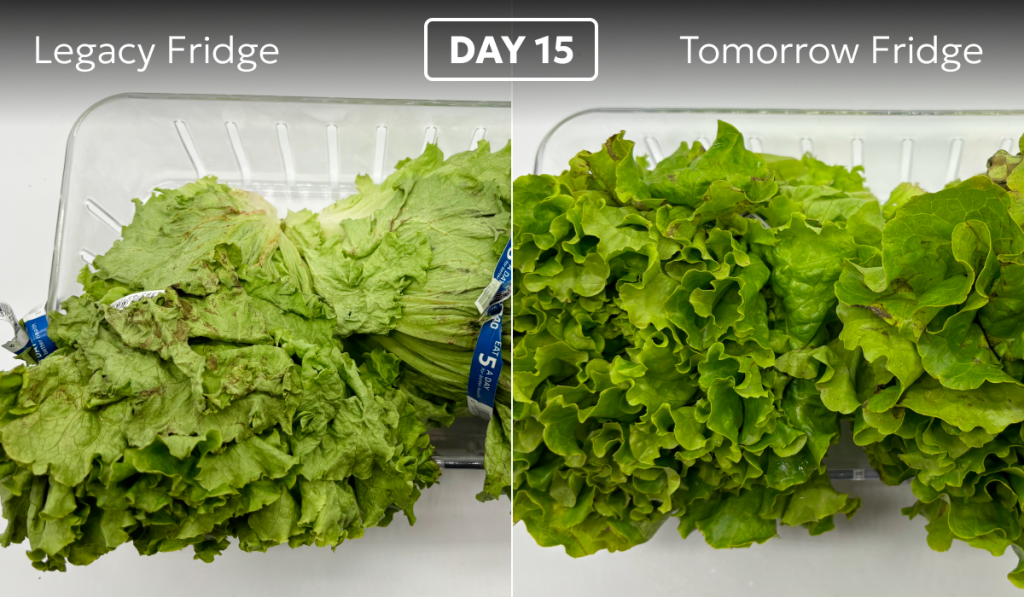Paragraph 1: The Challenge of Food Waste and the Promise of Tomorrow
The modern kitchen, despite being a hub for culinary creativity and healthy eating, often faces a significant challenge: food waste. Fresh produce, a cornerstone of a nutritious diet, is particularly susceptible to spoilage, leading to both economic loss and environmental concerns. This issue, where perfectly good fruits and vegetables wilt, brown, or become overly ripe in the confines of our refrigerators, is a common frustration for home cooks. Tomorrow, a Seattle-based startup emerging from stealth mode, promises a technological solution to this pervasive problem. Led by Andrew Kinzer, a seasoned entrepreneur with a background in sales software, Tomorrow aims to revolutionize food preservation with a high-tech refrigerator designed to dramatically extend the life of fresh produce.
Paragraph 2: Tomorrow’s Technological Approach to Food Preservation
Tomorrow’s approach centers on a deep understanding of "postharvest physiology," the science of slowing the aging process in fruits and vegetables. Kinzer, who now considers himself an expert in this field, has led the development of a patent-pending cooling system that precisely manages the atmosphere within the refrigerator, minimizing water loss, a key factor in produce deterioration. This sophisticated system is coupled with computer vision technology that identifies the specific type of produce stored in each compartment, enabling tailored preservation strategies. Furthermore, the integrated smart technology tracks inventory and alerts users when supplies are running low, streamlining grocery shopping and reducing the likelihood of forgotten, spoiled items.
Paragraph 3: Experimental Validation and Market Positioning
While Tomorrow remains tight-lipped about the specifics of its technology and the refrigerator’s design, the company has conducted extensive experiments demonstrating significant improvements in water retention across a variety of produce, from bell peppers to delicate strawberries. This data underscores the effectiveness of their approach in combating spoilage. Although details on pricing are yet to be revealed, Tomorrow is entering a market largely dominated by conventional refrigerators, with few direct competitors offering comparable "smart" features. Samsung’s $5,000 smart refrigerator, with its ability to recognize contents, stands as a potential competitor, yet Tomorrow’s focus on extending produce lifespan sets it apart. Kinzer believes Tomorrow’s deep dive into postharvest science positions them uniquely in the market, differentiating them from the "status quo."
Paragraph 4: Addressing Food Waste and Market Opportunity
The problem Tomorrow aims to address is significant. Estimates suggest that 30-40% of the food supply in the United States goes to waste, a staggering statistic with both economic and environmental ramifications. By extending the shelf life of produce, Tomorrow’s technology could contribute significantly to reducing this waste, offering consumers a practical solution to a common household problem. The company sees a substantial market opportunity within the broader refrigeration industry, estimated to be worth over $5 billion. Currently self-funded and with a small team of four employees, Tomorrow is poised to disrupt this market with its innovative approach to food preservation.
Paragraph 5: Kinzer’s Entrepreneurial Journey and Seattle’s Food Tech Ecosystem
Andrew Kinzer’s entrepreneurial journey began with Outreach, a Seattle-based sales software company he co-founded. Over a decade, Kinzer helped grow Outreach to a multi-billion dollar valuation before departing in 2020. His experience scaling a successful tech company provides a solid foundation for his new venture. Tomorrow is also part of a growing ecosystem of food technology companies in the Seattle area. Other local players, such as Strella Biotechnology and Transparent Path, are also tackling food waste through different technological approaches, focusing on ethylene detection and real-time food condition monitoring, respectively. This concentration of innovation highlights the region’s growing focus on addressing food sustainability challenges.
Paragraph 6: Anticipating Tomorrow’s Impact
Tomorrow’s innovative technology holds the potential to significantly impact how we store and consume fresh produce. The promise of longer-lasting fruits and vegetables translates to less food waste, reduced grocery bills, and decreased environmental impact. While the company is still in its early stages, its focus on scientific principles and sophisticated technology suggests a promising future. As Tomorrow prepares to unveil its product, the anticipation builds for a potential game-changer in the refrigeration industry, offering consumers a practical and effective solution to the age-old problem of food spoilage.


